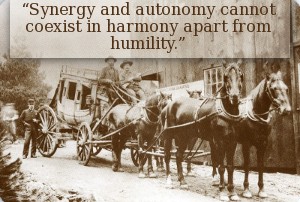
Bill and Mary have put off their estate planning for too long. If they were to die unexpectedly, they have some definite ideas about who should serve as guardians for their three children, how their assets should be disbursed, and how their estate could avoid probate hassles. Since neither Bill nor Mary is a legal expert, they have contacted Preston, a recent college graduate, to formulate an estate plan for them. Preston took a class in business law, and he is planning on entering law school after he pays off his school loans. Though Preston has never drafted a will before, Bill and Mary appreciate that he will do this service for a quarter of the cost that a trained lawyer would charge. They have known Preston for many years, and they know he will do his best. Would you agree with Bill and Mary’s decision to hire Preston?
Or consider another scenario. Your child has severely inflamed tonsils, a high fever, and a violent cough. Upon entering the local clinic, you and your child meet with an elderly woman who examines your child and declares that she needs to perform a tonsillectomy on him. You ask for her credentials, expecting to meet with your regular family doctor for the procedure, but she claims that your doctor has given her permission to operate. Even though she has no medical degree, she thinks that tonsillectomies are quite simple to do. She ought to know, she says, because she took anatomy in college and has watched a lot of training videos. Will you place your son under her knife?
Situations like these appear nonsensical to us because rarely would one seek legal or medical services knowing that the practitioners have not received proper training in graduate institutions. We expect lawyers to attend law school and to prove they know the material by passing the bar exam. We expect doctors to attend medical school and to pass the medical board exam.
So what should we expect of those who serve in pastoral ministry? Do pastors need training in graduate school (seminaries)? Should they pass a doctrinal exam of some sort? Assuming spiritual care of souls is at least as important as physical care of bodies or legal care of estates, is it not reasonable that spiritual shepherds gain the training necessary to perform their tasks with skill and wisdom?
Indeed it is. I hope to show that seminary education has great value not only because it is culturally and practically wise (as the comparison with medicine and law implies) but even more because it helps develop and hone the skills and the heart necessary for doing the work of the ministry.
 Read
Read  The following is part three of a transcribed speech Dr. Davey delivered at the annual Transnational Association of Christian Colleges and Schools (
The following is part three of a transcribed speech Dr. Davey delivered at the annual Transnational Association of Christian Colleges and Schools ( The following is part one of a transcribed speech Dr. Davey delivered at the annual Transnational Association of Christian Colleges and Schools (
The following is part one of a transcribed speech Dr. Davey delivered at the annual Transnational Association of Christian Colleges and Schools ( The following is part one of a transcribed speech Dr. Davey delivered at the annual Transnational Association of Christian Colleges and Schools (
The following is part one of a transcribed speech Dr. Davey delivered at the annual Transnational Association of Christian Colleges and Schools ( Bible colleges exist to train Christian workers. Seminaries exist to equip Christian leaders. If you want to be a good deacon, Sunday school teacher, or youth leader, then Bible college is adequate. If you want to be an effective pastor, missionary, church planter, or preacher, then seminary is very important. True, some men can minister well without attending seminary, but even they would be more effective if they had.
Bible colleges exist to train Christian workers. Seminaries exist to equip Christian leaders. If you want to be a good deacon, Sunday school teacher, or youth leader, then Bible college is adequate. If you want to be an effective pastor, missionary, church planter, or preacher, then seminary is very important. True, some men can minister well without attending seminary, but even they would be more effective if they had.
Discussion